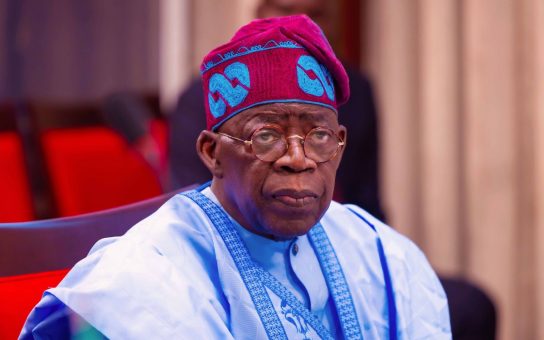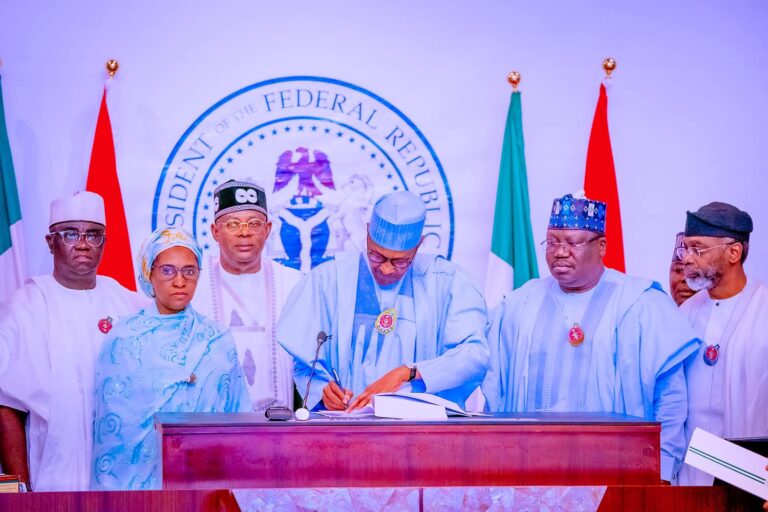President Bola Tinubu reaffirmed his commitment to utilizing advanced technologies to enhance transparency, improve efficiency, and establish strategic partnerships that will drive Nigeria’s sustainable development. Addressing delegates at the 54th Annual Accountants Conference in Abuja, Tinubu outlined a vision that focuses on institutional reforms and fostering a deep-rooted culture of accountability as essential for the nation’s growth.
Represented by Minister of Budget and Economic Planning, Atiku Bagudu Abubakar, the president reflected on the administration’s progress over the past 17 months. He explained that several difficult but necessary decisions were made to stabilize the economy and set Nigeria on a path to higher, sustainable, and inclusive growth. “Our collective goal has been to stop the decline and position Nigeria for long-term success,” he stated.
He expressed optimism about the economic indicators in 2024, noting that GDP growth in the first two quarters was positive, while inflation showed a downward trend. The president also mentioned improvements in the foreign exchange market, with signals pointing toward increased investor confidence. “We are seeing positive results from our reforms,” he said, emphasizing the critical role of economic measures in stabilizing the market.
The president highlighted several reform efforts, including the digitization of revenue collection, which aims to improve efficiency in government services. He also pointed to the implementation of a consumer credit system designed to stimulate manufacturing and improve access to goods and services, and ongoing reforms to Nigeria’s mortgage system to promote wider home ownership. Another key initiative, the expansion of compressed natural gas (CNG) as an alternative energy source, is intended to provide a cheaper option for Nigerians.
In agriculture, Tinubu stressed the importance of the agricultural development fund, which seeks to de-risk agricultural investments and foster greater resilience in the sector. The removal of costly subsidies was another significant reform aimed at reducing the financial drain on the economy. According to Tinubu, this has allowed for higher allocations to the three tiers of government, enabling them to support vulnerable populations more effectively.
“Our reforms are not just economic; we are increasing social investment spending,” Tinubu said, citing the recent increase in the minimum wage, the introduction of student loans, and expanded support for micro, small, and medium enterprises (MSMEs), as well as farmers, fishers, and livestock sectors. These efforts are part of a broader strategy to empower the most affected segments of the population and ensure their participation in Nigeria’s growth story.
Acknowledging the role of accountants in this process, Tinubu emphasized the profession’s importance in safeguarding transparency, ensuring integrity, and managing the country’s financial resources efficiently. “As stewards of governance and accountability, your expertise is critical in fostering a more transparent, efficient, and equitable society,” he stated. He urged accountants to continue playing a pivotal role in shaping the nation’s economic landscape and reinforcing the foundation of trust on which societal progress is built.
Tinubu further discussed the evolving governance landscape, pointing out both the challenges and opportunities it presents. He noted that the advent of emerging technologies is reshaping the way governance is conducted, opening new avenues for enhancing accountability and transparency across the public and private sectors.
“We stand at a crucial juncture where innovation is not just an option but a necessity,” Tinubu said. He called on accountants and other professionals to leverage their collective expertise and embrace these technological advancements to address Nigeria’s evolving governance needs.
In conclusion, reassured the nation that his administration remains committed to implementing bold reforms and harnessing innovative solutions to secure Nigeria’s economic future. He stressed that with the continued support of key sectors like accounting and finance, Nigeria is well-positioned to achieve its goal of sustainable and inclusive development.










